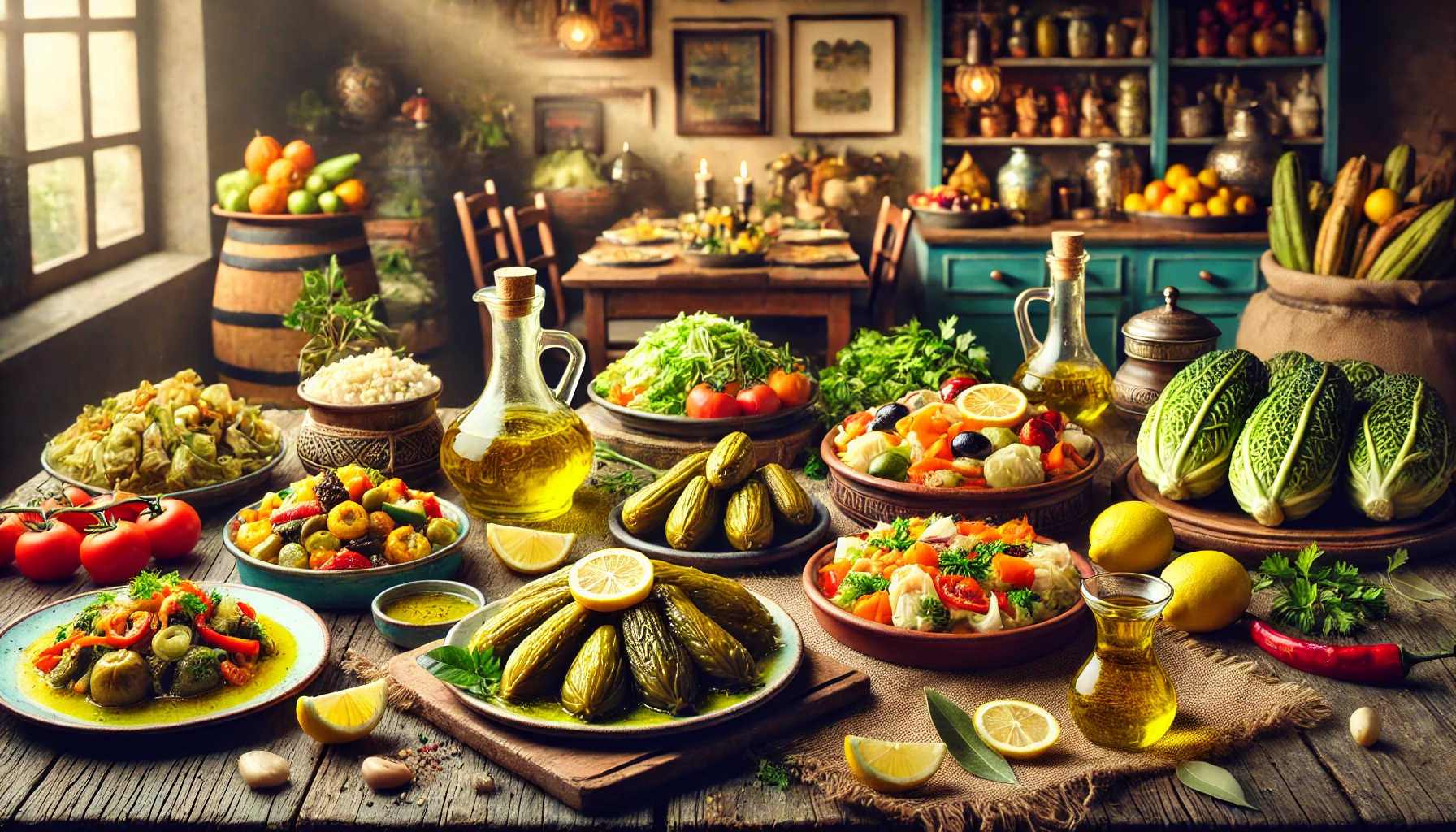The Essence of Turkish Cuisine: Vegetable Dishes with Olive Oil
Vegetable dishes with olive oil constitute the core of Turkish cuisine and are the mainstay of dinner tables, especially in the Aegean and Mediterranean regions. These dishes are not only delicious but also offer numerous health benefits, making them a key element of Turkish culinary tradition.
A Celebration of Vegetables and Olive Oil
Health and Flavor Combined
Vegetable dishes prepared with olive oil are dined rather cold and may be served alongside the main course or as the main dish itself. The use of high-quality olive oil enhances the flavor of vegetables while preserving their nutritional value. These dishes are a perfect blend of taste and health, embodying the essence of Mediterranean cuisine.
Popular Olive Oil Vegetable Dishes
Sarma and Dolma
Sarma and dolma are iconic dishes in Turkish cuisine. Sarma consists of grape leaves stuffed with a mixture of rice, herbs, and sometimes ground meat. Dolma, on the other hand, refers to vegetables such as bell peppers, zucchinis, and eggplants stuffed with a similar filling. Both dishes are cooked slowly in olive oil, resulting in a tender and flavorful delicacy.
Kidney Beans (Barbunya Pilaki)
Barbunya pilaki is a beloved dish made from kidney beans cooked with onions, carrots, tomatoes, and olive oil. It is typically served cold, allowing the flavors to meld together. This dish is not only tasty but also packed with protein and fiber, making it a nutritious option.
Artichokes (Enginar)
Artichokes are another staple in Turkish olive oil cuisine. They are often prepared with carrots, potatoes, peas, and fresh herbs, all simmered gently in olive oil. This dish, known as “zeytinyağlı enginar,” is light, refreshing, and full of vitamins and minerals.
Black-Eyed Peas (Kuru Börülce)
Black-eyed peas cooked with olive oil, onions, tomatoes, and green peppers create a delicious and hearty dish. This dish, often enjoyed cold, is rich in protein and provides a satisfying meal that is both healthy and flavorful.
The Cultural Significance of Olive Oil Dishes
A Mediterranean Tradition
The tradition of preparing vegetables with olive oil is deeply rooted in the Mediterranean lifestyle, where fresh, seasonal produce is valued. This method of cooking reflects the agricultural abundance of the region and the emphasis on simple, wholesome ingredients.
Versatility in Meals
These vegetable dishes are incredibly versatile. They can be served as appetizers, side dishes, or even as a light main course. Their ability to complement a variety of other dishes makes them a staple in Turkish dining.
Celebrations and Everyday Meals
From festive gatherings to everyday family dinners, olive oil vegetable dishes are a common sight on Turkish tables. They are a testament to the country’s rich culinary heritage and the importance of healthy, flavorful eating.
Conclusion
Vegetable dishes with olive oil are the cornerstone of Turkish cuisine, particularly in the Aegean and Mediterranean regions. Dishes like sarma, dolma, barbunya pilaki, zeytinyağlı enginar, and kuru börülce showcase the best of what Turkish cooking has to offer: a harmonious blend of taste, health, and tradition. These dishes not only enrich the dining experience but also reflect the cultural values and lifestyle of the Mediterranean.
Latest Update: May 22, 2015
Your Content Goes Here
A brief summary of the key points in this article.




